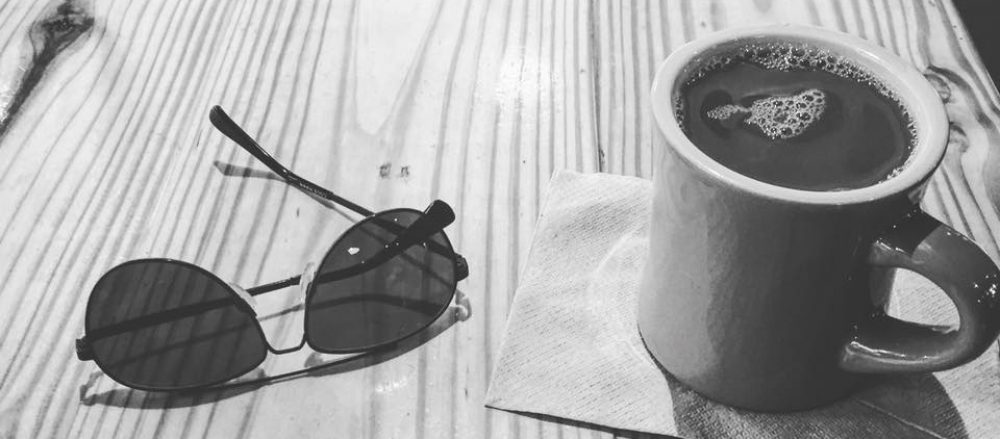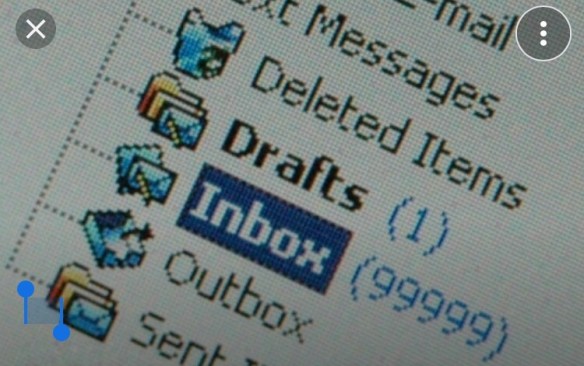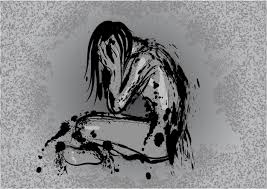 I was running today, listening to a podcast where they were discussing one of my favorite Buddhist authors, Pema Chodron, and her book When Things Fall Apart. It is not an exaggeration to say that Chodron’s book has changed my life, and saved many parts of me over and over again.
I was running today, listening to a podcast where they were discussing one of my favorite Buddhist authors, Pema Chodron, and her book When Things Fall Apart. It is not an exaggeration to say that Chodron’s book has changed my life, and saved many parts of me over and over again.
As the discussion unfolded using the book as a map, the host and guest noted that Chodron’s notion of the Buddhist maras, or “evils,” includes the “fear of death.” And the guest went on to say, “And that doesn’t just mean the big death. That’s also all the other little deaths.”
And I stopped running.
I stopped running, put my hands on my knees and sighed a big sigh. I just decided to be for a brief moment, huffing and puffing, sweat cascading down my face. I took a second to honor a little death right then and there: the death of my routine.
Yes, you might think it’s a small thing, but I hadn’t honored it yet. I have deluded myself, using the drugs of “one day” and “soon” to shove my grief aside, but I have to come to grips with the fact that my routine, the one I knew, is dead. I have been afraid to honor it because, well, that would mean I’d have to admit it is really dead.
It is.
And for me this is no small thing. I live and die by the calendar and the clock. For as flexible as my schedule is, I make it inflexible purposefully because I need fences to organize my life. It’s ironic, really: I don’t like fences when it comes to my thoughts, beliefs, or ideas, but I need them when it comes to my daily rituals.
We must have roots somewhere if we want to grow, right?
And it got me to thinking that all around us, in our homes, in our workplaces (or lack thereof), in our civic engagements (or lack thereof), in our patterns and practices, there are a thousand little deaths at this moment, and so many of us are just “waiting it out.”
But, Beloved, this is a Wake, not a pause. This is a Wake.
The Wake, especially in my Irish heritage, was where you sat up all night with the body of the deceased, usually laid out on your kitchen table, and you drank, and played cards, and made a ruckus, trying to rouse the dead person from their prone position just in case they might still be alive. Everyone likes a party, right? And so if they were “mostly dead” and not “fully dead,” they’d rise to join.
They’d wake.
Well, in March we thought maybe our routines were just “mostly dead.” But now, in May…well, my friends…it’s time to start organizing the funeral.
We need to honor these little deaths. We need to stop pretending that things can go back to the way they were. I mean, even if we wanted them to, and I’m not sure we really do because, let’s be very honest: the system wasn’t working very well for many, right?
But even if we wanted them to, they can’t. We’ve seen too much.
We’ve seen how quickly the elderly have become expendable. We’ve seen how fragile our “robust economy” actually was. We’ve seen how grocery store clerks belong in the same sentence as fire fighters, nurses, and doctors, and we’ve noticed how glaringly other so-called “important professions” are missing from the term “essential worker.” We’ve seen how our political system and our politicians, with some notable exceptions, will politicize a pandemic.
We’re not waiting out this virus, Beloved. It’s killing things. People, yes, but also our illusions, and we have the choice to numb ourselves with platitudes, or we can do the hard thing and no longer shelter our lives from the pain it is causing.
We must honor the little deaths, even if we do so in little ways.
It is freeing for me to say, with such frequency, “I don’t know.” I say it all the time with my kids now. My partner and I say it to one another regularly, especially when we talk about things happening in the summer months and next fall.
I don’t know when we’ll get to go to grandma and grandpa’s house again. I don’t know if we’ll be at our nephew’s graduation party. I don’t know when we’ll resume swimming lessons. I don’t know if we’ll keep our jobs.
I just don’t know.
One of the little deaths I’m having to grieve now in this Wake is the death of so much certainty I thought I had, so many plans we had already made. Like my ancestors at an Irish wake, I raise a glass to that certainty saying, “Cheers. You had a nice run, old pal.”
Because it’s gone, and in many ways that’s both OK and so not OK, but either way it’s just damn true.
We must attend to the little deaths, Beloved. We must free ourselves to grieve, to tell stories of what was, and be present in the waiting for what will be.


 Covid-19 is set to put most everything on hold in the United States, as it is already doing in China, Italy, South Korea, and Norway.
Covid-19 is set to put most everything on hold in the United States, as it is already doing in China, Italy, South Korea, and Norway. Email is killing my profession.
Email is killing my profession. I know I write and talk a lot about my children. They have totally changed everything about my life, and even much about me.
I know I write and talk a lot about my children. They have totally changed everything about my life, and even much about me. I don’t remember when I first read her work. I’m sure it was in my twenties.
I don’t remember when I first read her work. I’m sure it was in my twenties. I haven’t quite figured out how to say what I want to say here. It’s just not coming out right. So I’ll start by saying these three things that I think are absolutely true:
I haven’t quite figured out how to say what I want to say here. It’s just not coming out right. So I’ll start by saying these three things that I think are absolutely true: February 14th is Ash Wednesday this year.
February 14th is Ash Wednesday this year. Another act of domestic terrorism has filled the news, filled our heads, and at this writing, hundreds of people who were enjoying life just hours ago are now filling the hospitals and, tragically, over 50 are already confirmed dead.
Another act of domestic terrorism has filled the news, filled our heads, and at this writing, hundreds of people who were enjoying life just hours ago are now filling the hospitals and, tragically, over 50 are already confirmed dead.